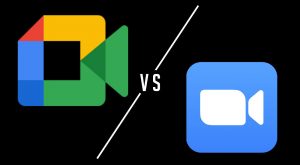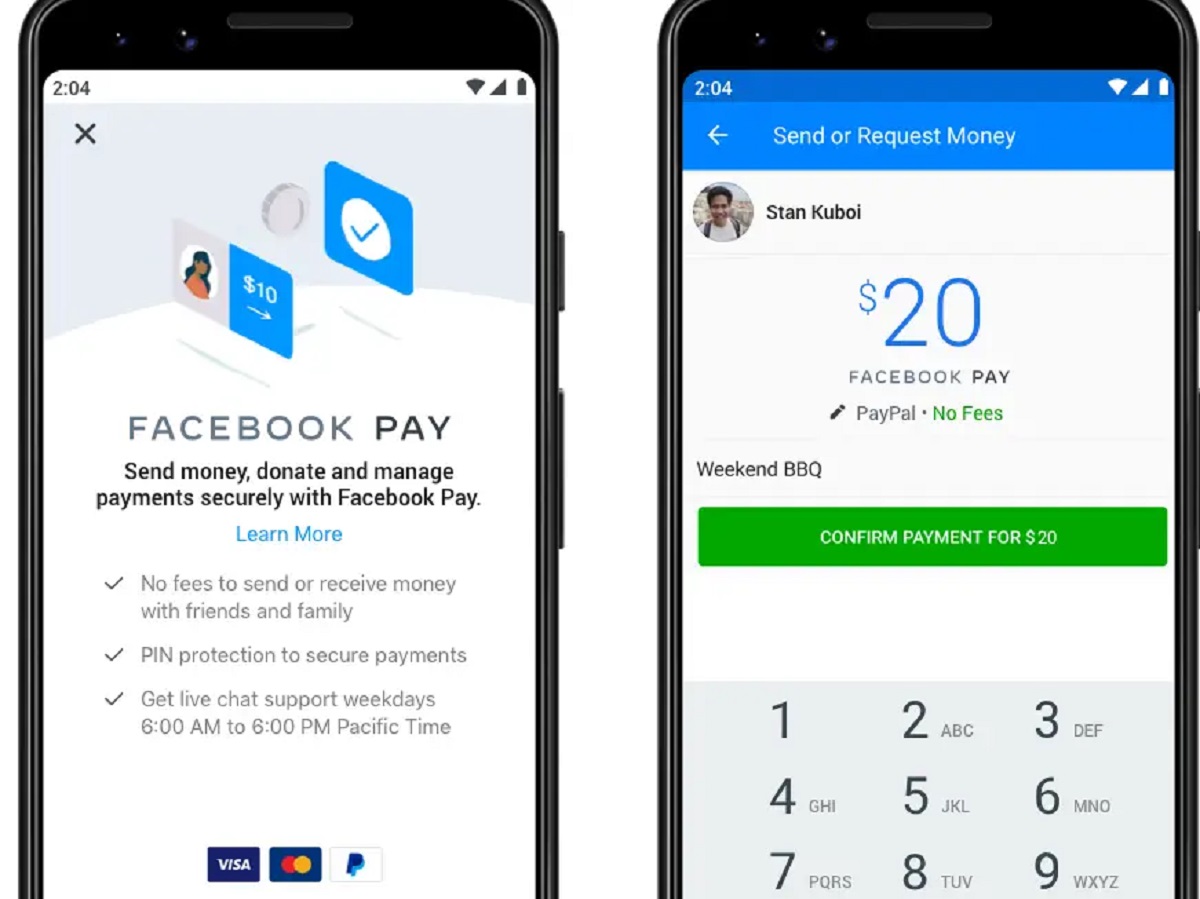Introduction
Facebook and Google are two tech giants that dominate the digital landscape, shaping the way we connect, communicate, and consume information. Both companies offer lucrative job opportunities, but it is a well-known fact that Facebook pays higher salaries than Google. This discrepancy in compensation has caught the attention of job seekers and industry experts alike, prompting the question: why does Facebook pay higher than Google?
While there could be various reasons behind this disparity, it is important to explore the key factors that contribute to Facebook’s ability to offer higher compensation packages. Understanding these factors can provide insights into the dynamics between these companies and shed light on the differences in their business strategies, cultures, and priorities.
In this article, we will dive into the factors that potentially explain why Facebook pays higher than Google. By examining Facebook’s user base and reach, advertising revenue and diversification, targeted advertising capabilities, data collection and utilization, investment in AI and machine learning, mobile dominance and social media trends, competitive salaries and benefits, and corporate culture and work environment, we can gain a comprehensive understanding of the unique advantages Facebook possesses.
Let’s explore these factors in more detail and uncover the reasons behind Facebook’s ability to provide higher compensation to its employees.
Facebook’s User Base and Reach
One of the primary reasons why Facebook pays higher than Google is the sheer size and reach of its user base. With over 2.8 billion monthly active users as of 2021, Facebook has an unparalleled reach in the digital space. This massive user base provides a significant advantage when it comes to advertising revenue and monetization.
Advertisers are willing to pay top dollar to reach such a vast audience, and Facebook leverages this demand to generate substantial advertising revenue. The company’s ability to generate high revenue streams allows it to allocate a larger budget for employee compensation.
Furthermore, Facebook’s global presence gives it an edge over Google, which relies heavily on search engine advertising. While Google dominates the search engine market, Facebook’s extensive social media platform allows for targeted advertising to individuals based on their interests, demographics, and online behavior.
This highly targeted approach translates to higher engagement and conversion rates for advertisers, making Facebook a preferred choice for many marketers. The increased revenue from targeted advertising provides Facebook with the means to offer higher salaries to attract and retain top talent.
In addition to its user base, Facebook’s acquisition of Instagram and WhatsApp has further expanded its reach and potential advertising opportunities. These platforms, combined with Facebook’s own social media platform, create a powerful advertising ecosystem that offers a broader audience and diverse demographics.
Overall, Facebook’s immense user base and reach, coupled with its ability to offer targeted advertising opportunities, contribute to its ability to pay higher salaries compared to Google.
Advertising Revenue and Diversification
Another factor that contributes to Facebook paying higher than Google is its diversified revenue streams, with a significant focus on advertising. While Google mainly relies on search engine advertising, Facebook has successfully expanded its advertising capabilities across various platforms and formats.
Facebook offers a wide range of advertising options, including sponsored posts, video ads, carousel ads, and messenger ads, to name a few. This diversification allows Facebook to cater to different types of advertisers and accommodate varied budget allocations. As a result, the company can generate substantial advertising revenue from a diverse pool of advertisers.
In comparison, Google’s revenue primarily stems from its search engine advertising platform, Google Ads. While Google Ads is highly profitable, the lack of diversified advertising formats may limit its revenue potential in comparison to Facebook.
Additionally, Facebook’s ability to leverage user data for targeted advertising plays a significant role in its advertising revenue growth. The platform collects detailed user information, such as interests, demographics, and online behavior, which enables advertisers to reach their target audiences with precision.
This granular level of targeting provides advertisers with better returns on their ad spend, leading to increased demand for Facebook’s advertising services and, consequently, higher revenue. Facebook’s strong advertising revenue stream allows the company to invest more in employee salaries and benefits, creating an environment where higher compensation can be provided.
Moreover, Facebook’s continuous efforts to innovate and introduce new advertising features, such as augmented reality ads and dynamic product ads, demonstrate its commitment to staying at the forefront of advertising technology. These innovations not only attract more advertisers but also contribute to revenue growth and the ability to offer higher salaries to its employees.
Overall, Facebook’s diversified advertising revenue streams, combined with its constant innovation and utilization of user data for targeting, contribute to its ability to provide higher compensation packages compared to Google.
Targeted Advertising Capabilities
Facebook’s advanced targeted advertising capabilities are a crucial factor behind its ability to pay higher salaries than Google. The platform’s sophisticated algorithms and robust data analytics enable advertisers to reach highly specific and relevant audiences, driving better engagement and conversion rates.
Facebook offers a plethora of targeting options that allow advertisers to define their target audience based on factors such as demographics, interests, behaviors, and even specific life events. This level of granularity ensures that advertisers can tailor their ads to reach the right people, resulting in more effective marketing campaigns.
Compared to Google’s predominantly keyword-based targeting on its search engine, Facebook’s targeting capabilities are more diverse and comprehensive. This gives Facebook a unique advantage and attracts more advertisers who seek to maximize their returns on investment through precise audience targeting.
The ability to deliver highly targeted ads translates into higher demand for Facebook’s advertising services, which, in turn, drives up advertising rates. The increased revenue allows Facebook to allocate more resources to employee compensation, including higher salaries.
Furthermore, Facebook’s continuous innovation in ad targeting technology ensures that it stays ahead of the curve in the advertising industry. The platform leverages artificial intelligence and machine learning algorithms to analyze user data, identify patterns, and optimize ad targeting strategies.
Through machine learning, Facebook constantly improves its ad delivery system, enabling advertisers to reach their desired audience more effectively. This technological prowess adds value to advertisers and justifies higher advertising budgets, contributing to Facebook’s ability to pay higher salaries to its employees.
Additionally, Facebook’s acquisition of third-party data providers and partnerships with external companies further expand its dataset for targeting capabilities. This access to additional data sources enhances Facebook’s ability to provide even more precise and effective targeting options to advertisers.
In summary, Facebook’s advanced and diverse targeted advertising capabilities, driven by cutting-edge technology and access to extensive user data, contribute to its ability to offer higher salaries compared to Google.
Data Collection and Utilization
Facebook’s robust data collection and utilization practices play a significant role in its ability to pay higher salaries than Google. As a social media platform, Facebook collects a vast amount of user data, including personal information, interests, behaviors, and interactions.
This wealth of data allows Facebook to create detailed user profiles, enabling advertisers to target specific audience segments with precision. Facebook’s ability to leverage this data for effective advertising campaigns results in higher demand for its advertising services.
Moreover, Facebook’s data-driven approach extends beyond advertising. The platform utilizes data to gain insights into user preferences, trends, and market dynamics. This information informs decision-making processes and guides product development, marketing strategies, and overall business growth.
Facebook’s data collection and utilization practices are supported by advanced analytics and machine learning algorithms. These tools analyze the vast amounts of data, identifying patterns, trends, and correlations that help improve ad targeting and user experience on the platform.
The ability to harness data for targeted advertising and strategic decision-making provides Facebook with a competitive edge. This competitive advantage translates into higher revenue streams, allowing the company to invest more in employee compensation, including higher salaries.
Furthermore, Facebook’s commitment to data privacy and security helps maintain user trust and confidence. By implementing strict data protection measures and providing users with control over their privacy settings, Facebook ensures that users feel safe while sharing their information on the platform. This trust factor further enhances the effectiveness of Facebook’s data collection and utilization practices.
In addition, Facebook’s investments in AI research and development enable the platform to continuously improve its data analysis capabilities. By leveraging AI technologies, Facebook can extract valuable insights from large datasets, leading to more accurate targeting, personalized user experiences, and ultimately, higher revenue.
In summary, Facebook’s extensive data collection and utilization practices, supported by advanced analytics and AI technologies, contribute to its ability to provide higher compensation packages compared to Google.
Investment in AI and Machine Learning
Facebook’s significant investment in artificial intelligence (AI) and machine learning plays a pivotal role in its ability to pay higher salaries compared to Google. The company recognizes the transformative potential of AI in revolutionizing various aspects of its business, including advertising, user experience, and product development.
AI and machine learning algorithms enable Facebook to analyze massive amounts of user data and extract actionable insights. These insights not only enhance the effectiveness of targeted advertising campaigns but also contribute to overall business growth and revenue generation.
By leveraging AI, Facebook can better understand user preferences, interests, and behaviors, allowing for more precise ad targeting. This increased precision leads to higher engagement rates, better ad performance, and ultimately, higher ad revenues.
Moreover, Facebook’s investment in AI enables the platform to improve user experience through personalized content recommendations, smart news feeds, and context-aware advertising. AI algorithms analyze individual preferences and behaviors, tailoring the user experience to maximize engagement and satisfaction.
Facebook’s AI-driven approach also extends to the development of innovative features and products. The platform utilizes machine learning algorithms to identify emerging trends, predict user needs, and create new offerings that meet the evolving demands of its user base.
Furthermore, Facebook’s research initiatives in AI help drive advancements in the field, contributing to the industry as a whole. Building a strong AI research team allows Facebook to attract top AI talent and expertise, which in turn provides a competitive advantage in the market.
The investment in AI not only enhances Facebook’s revenue potential but also optimizes internal processes and operations. AI-powered automation and optimization algorithms streamline tasks, improve efficiency, and reduce costs across various departments within the organization.
Overall, Facebook’s strategic investment in AI and machine learning enables the platform to leverage data-driven insights, enhance user experience, develop innovative products, and drive higher revenue. It is this commitment to harnessing the power of AI that allows Facebook to provide higher compensation to its employees.
Mobile Dominance and Social Media Trends
Facebook’s mobile dominance and ability to adapt to evolving social media trends contribute to its capacity to offer higher salaries compared to Google. With the rapid growth of mobile usage, Facebook has successfully positioned itself as a leader in the mobile advertising space.
As more users access the internet and engage with social media platforms primarily through mobile devices, advertisers have shifted their focus to mobile advertising. Facebook’s mobile-first approach allows the company to capitalize on this trend and generate substantial ad revenue from mobile advertisements.
The seamless integration of ads within the Facebook mobile app, along with features like sponsored posts and stories, ensures that advertisers can reach users on their preferred device without disrupting the user experience significantly.
Furthermore, Facebook’s ability to stay ahead of social media trends ensures its continued relevance and popularity among users and advertisers alike. The platform constantly evolves to meet changing user preferences and behaviors, adapting to emerging social media trends.
For instance, Facebook’s acquisition of Instagram in 2012 has been instrumental in its mobile dominance. Instagram, with its visually-driven content and powerful influencer marketing capabilities, has become a key platform for advertisers looking to connect with a younger, mobile-savvy audience.
By expanding its reach and diversifying its platform portfolio, Facebook extends its advertising opportunities and revenue potential beyond its core social media platform.
In addition to Instagram, Facebook has also embraced emerging trends such as live video streaming, augmented reality, and private messaging. These innovations enable advertisers to engage with users in novel and immersive ways, capturing their attention and increasing the effectiveness of ad campaigns.
By staying at the forefront of mobile and social media trends, Facebook ensures that it remains an attractive platform for advertisers, allowing the company to generate high revenue streams. This financial success provides Facebook with the ability to offer higher salaries to recruit and retain top talent.
Overall, Facebook’s mobile dominance and its ability to adapt to evolving social media trends contribute to its competitive edge and its ability to provide higher compensation packages compared to Google.
Competitive Salaries and Benefits
One of the key factors that contribute to Facebook paying higher salaries than Google is its commitment to offering competitive compensation packages. Facebook recognizes the importance of attracting and retaining top talent in a competitive job market, and it leverages its financial resources to offer attractive salaries and benefits.
Facebook’s ability to generate significant revenue from advertising and its strong financial position allow the company to allocate a larger portion of its budget towards employee compensation. This provides Facebook with the flexibility to offer higher salaries compared to its competitors, including Google.
Additionally, Facebook’s recognition of the value of its employees’ contributions drives its dedication to providing comprehensive benefits packages. Beyond competitive salaries, Facebook offers perks such as stock options, bonuses, and generous healthcare and retirement plans, ensuring the well-being and financial security of its employees.
The company also places a strong emphasis on work-life balance and employee well-being. Facebook offers flexible working hours, remote work options, and comprehensive leave policies to promote a healthy work-life integration for its employees.
Another unique benefit that Facebook provides is the access to cutting-edge tools, technologies, and resources. Employees have the opportunity to work with state-of-the-art equipment and have access to various training and development programs, enabling them to enhance their skills and stay ahead in their fields.
Facebook’s commitment to fostering a positive and inclusive work environment is also reflected in its employee benefits. The company focuses on fostering a diverse and inclusive workforce, and offers resources and initiatives to support employee growth, mental health, and well-being.
Furthermore, Facebook offers various employee engagement programs, such as team-building activities, mentorship programs, and opportunities for career advancement. These initiatives create a sense of belonging and provide avenues for personal and professional growth within the organization.
Ultimately, Facebook’s dedication to offering competitive salaries, comprehensive benefits, and a supportive work environment helps attract and retain top talent. By investing in their employees’ success and satisfaction, Facebook can maintain a highly skilled workforce and drive innovation, further solidifying its position and justification for paying higher salaries.
Corporate Culture and Work Environment
The corporate culture and work environment at Facebook contribute significantly to its ability to pay higher salaries than Google. Facebook has cultivated a reputation for fostering a dynamic, innovative, and inclusive work culture that attracts top talent from around the world.
One of the defining characteristics of Facebook’s corporate culture is its emphasis on open communication and collaboration. Employees are encouraged to share ideas, provide feedback, and work together across teams and departments. This collaborative culture fosters creativity, problem-solving, and the generation of innovative solutions.
Facebook also places a strong emphasis on maintaining a transparent and supportive work environment. The company promotes a sense of trust and autonomy among its employees, allowing them to take ownership of their work and contribute to the company’s overall success.
Moreover, Facebook values employee well-being and offers numerous perks and programs that enhance work-life balance and personal growth. From wellness programs and on-site facilities to flexible work arrangements and generous parental leave, Facebook strives to create an environment that supports its employees’ holistic needs.
Facebook’s commitment to diversity and inclusion is another aspect that sets its corporate culture apart. The company actively promotes diversity in its workforce and fosters an inclusive and equitable environment where employees from different backgrounds can thrive. This dedication to diversity not only enriches the work experience but also drives innovation and creativity within the company.
Additionally, Facebook’s leadership prioritizes continuous learning and supports employee growth and development. The company provides ample opportunities for training, workshops, and professional development programs that enable employees to enhance their skills and knowledge in their respective fields.
Furthermore, Facebook’s work environment is known for being dynamic and fast-paced, which appeals to individuals who thrive in challenging and rapidly evolving industries. The company encourages an entrepreneurial mindset, embraces risk-taking, and values agility, all of which contribute to its ability to attract and retain top-tier talent.
Overall, Facebook’s corporate culture and work environment are instrumental in its ability to provide higher compensation packages. By offering a stimulating, inclusive, and supportive workplace, Facebook creates an environment that attracts talented individuals who are motivated to contribute their best, thus justifying the higher salaries they receive.
Conclusion
Facebook’s ability to pay higher salaries compared to Google can be attributed to a combination of factors. The company’s massive user base and reach, diversified revenue streams, targeted advertising capabilities, data collection and utilization practices, investment in AI and machine learning, mobile dominance, competitive salaries and benefits, and corporate culture and work environment all contribute to its financial capacity to offer higher compensation packages to its employees.
Facebook’s extensive user base and reach, coupled with its targeted advertising capabilities, allow the company to generate substantial advertising revenue. This significant revenue, driven by Facebook’s ability to leverage user data and provide effective ad targeting, provides the financial resources to offer higher salaries compared to Google.
In addition, Facebook’s diversification of its revenue streams and continuous innovation in advertising technologies ensure its competitive edge and revenue growth. The company’s investments in AI and machine learning enhance its data analysis capabilities and drive better ad performance and user experience.
Facebook’s mobile dominance and its ability to adapt to evolving social media trends position the company as a preferred advertising platform for advertisers, further bolstering its revenue streams. This financial success, combined with Facebook’s commitment to providing comprehensive benefits and a positive work environment, enables the company to attract and retain top talent.
Ultimately, Facebook’s corporate culture, characterized by collaboration, transparency, diversity, and a focus on employee well-being and growth, creates an environment that appeals to talented individuals. The company’s commitment to investing in its employees and fostering innovation justifies its ability to pay higher salaries compared to Google.
In conclusion, the combination of these factors allows Facebook to maintain a competitive edge and financial capability to offer higher compensation packages. As the digital landscape continues to evolve, Facebook’s strategic advantages and dedication to excellence position it as a leader in the tech industry, attracting top talent and ensuring its continued success.

























